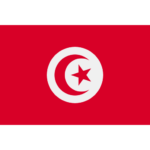Toward the establishment of a cancer registry at Gabès hospital.
As a reminder, here is a summary of the main points of these recommendations:
1. Throughout this collaboration, a training and internship program could be established.
2. The common desire to work on environmental health given the similarities between Gabès and Marseille in this regard: the two cities suffer from obvious environmental degradation. A sharing of experiences on the treatment of pathologies linked to the effects of different forms of pollution in both regions, with multidisciplinary skills specialized in the two hospitals will constitute the cornerstone of this cooperation.
3. Develop the profession of health mediator in Gabès: the Marseille hospital can help share its experience in this area.
4. The establishment of a register: such as, for example, the register of genital malformations, cancers, respiratory diseases (or other types of pathologies). The Marseille hospital can call on a specialist who would explain the methodology for setting up this register. A master's degree in record keeping could be prepared.
1. Throughout this collaboration, a training and internship program could be established.
2. The common desire to work on environmental health given the similarities between Gabès and Marseille in this regard: the two cities suffer from obvious environmental degradation. A sharing of experiences on the treatment of pathologies linked to the effects of different forms of pollution in both regions, with multidisciplinary skills specialized in the two hospitals will constitute the cornerstone of this cooperation.
3. Develop the profession of health mediator in Gabès: the Marseille hospital can help share its experience in this area.
4. The establishment of a register: such as, for example, the register of genital malformations, cancers, respiratory diseases (or other types of pathologies). The Marseille hospital can call on a specialist who would explain the methodology for setting up this register. A master's degree in record keeping could be prepared.
It is this last point that has recently seen notable progress thanks to the efforts of Dr. Samir Aloulou, Head of the Medical Oncology Service at the Gabès hospital and Chairman of the Medical Committee, who spares no effort to the establishment of a cancer registry within the hospital.
Why a cancer registry?
Il est à rappeler que la Tunisie s’est dotée, depuis 2008, d’un registre national du cancer (Décret n° 2008-846 du 24 mars 2008). Un registre des cancers contient des informations relatives à l’identification des cas atteints de cancer. Ces informations concernent notamment la localisation du cancer, la date de son diagnostic, son type histologique (tout ce qui concerne l’étude des tissus vivants) et ses stades évolutifs ainsi que les modalités de sa prise en charge.
The purpose of creating a cancer registry is in particular to monitor and control the disease and the extent of its spread, assess the methods of managing the disease and identify the factors of risk that increase the risk of the disease.
Gabès et plusieurs autres gouvernorats du sud tunisien souffrent de plusieurs types de cancers dus, entre autres, aux diverses formes de pollution que connaissent ces régions. D’autres causes sont avancés pour expliquer la propagation des cancers : le vieillissement de la population, l’adoption du mode vie occidental au plan mondial (mauvaises habitudes alimentaires, sédentarité, obésité…) ainsi que le tabagisme… D’où la nécessité d’une traçabilité de ces types de maladies et la nécessité de leur surveillance épidémiologique (incidence, gravité, évolution en fonction du site anatomique, du type histologique, différences interethniques ou géographiques…), l’évaluation des programmes de dépistage, de prévention ou de la prise en charge thérapeutique ainsi que la conduite de travaux de recherche épidémiologique.
The ever-increasing number of cancers in the governorate of Gabès and the neighboring regions requires an independent register for the location of these cancers, the dates of their diagnoses, their histological types, their evolutionary stages as well as the modalities of their care.
© 2022 Hedi Bouchamaoui Foundation. All Rights Reserved.
Non-profit organisation
Charity organization embodying the social and societal commitment of the HBG group.








